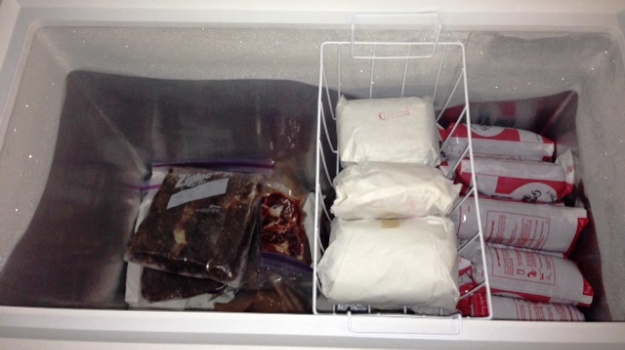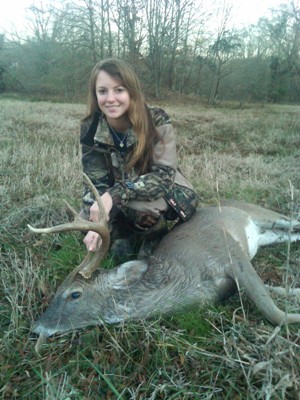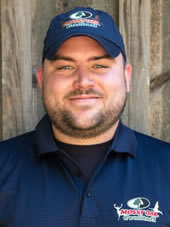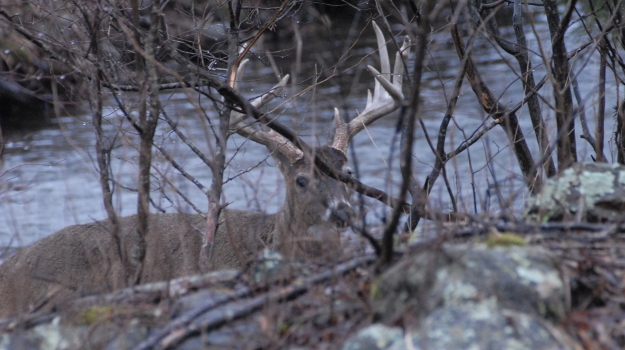by Cory Dukehart

I took my hunter safety course in 1994. I was 9 years old and in the fourth grade. Of course I learned plenty of valuable lessons during my 4 days in the class, but for the past 20 years I have always remembered learning about the Five Stages of a Hunter. The theory is that as hunters we all change throughout our lives and during those changes, we use different factors to determine what is considered a successful hunt. For those of you who are not aware, the Five Stages of a Hunter are as follows:
- Shooter Stage - The hunter finds satisfaction in just pulling the trigger. Missing their target means little, but the rush of getting the opportunity to shoot is what makes them get up in the morning.
- Limiting out Stage - The hunter qualifies a hunt as successful if in fact he or she is able to fill their bag limit. Shooting is obviously still as exciting and important to their hunt, but now being able to convert on all of those shots becomes the ultimate goal.
- Trophy Stage - Obviously this stage is popular amongst all hunters and most find themselves “stuck” in this stage the longest. Shooting opportunity and skills become less important, as harvesting that large horned animal typically is the only and ultimate goal.
- Method Stage - In this stage a hunter finds himself worried more about how he takes his game as opposed to how often. Taking game is still important but the tactics used to be successful are typically the exciting part. Whether it be switching from a compound bow to a recurve or hunting with a muzzleloader rifle. A hunter in this stage tries to handicap himself.
- Sportsmen Stage - As the hunter ages satisfaction can now be found in the total hunting experience. Enjoying the quiet time outdoors, watching a young hunter harvest their first animal, and spending time with family and friends outweigh the need to take game.
Not all hunters pass through all of these stages and not all of them go in this order. A hunter might find himself in the “Trophy Stage” when hunting whitetails and in the “Limiting out Stage” when duck hunting. There really is no right or wrong.
I am not sure why these steps have always stuck in my mind all of these years, but they certainly have. And I think there is some truth to the theory. I have often thought to myself, “What stage am I in?” I can certainly remember the “Shooter Stage.” I recall bragging to a friend in middle school about how I missed a deer with my bow. At the time, this friend had not had the opportunity to shoot at a deer. He couldn’t understand how I was excited about missing, and now that I look back on it, I don’t understand it either! But, a few months later he had a shot at his first deer and he also missed. But he agreed with me. It was awesome!
We all hunt because we enjoy it. But we all enjoy it for different reasons, and I think these stages do a good job of grouping those reasons together. But over the last few years, I have realized that I don’t fall into any of these categories anymore. As I get older and change, I assume I will fall back into one of them but now I am more concerned with procuring my own food.
 Hunting to me has become about sustenance. I have found myself more worried about filling the freezer than anything else. It’s not about money, as anyone who is a diehard hunter knows wild game is much more expensive than store bought meat when you take into account all the costs of hunting. Some of you may think that this is the same as the “Limiting out Stage,” but to me it is not. I don’t really care if I fill all of my tags; I just want to make sure I have enough meat to get me through the following offseason.
Hunting to me has become about sustenance. I have found myself more worried about filling the freezer than anything else. It’s not about money, as anyone who is a diehard hunter knows wild game is much more expensive than store bought meat when you take into account all the costs of hunting. Some of you may think that this is the same as the “Limiting out Stage,” but to me it is not. I don’t really care if I fill all of my tags; I just want to make sure I have enough meat to get me through the following offseason.
I have found myself shopping for food processors like grinders, dehydrators, and smokers more than the actual gear I need to hunt each day. I take pride in being able to offer a pack of deer sausage to a coworker. Or watching how fast my bacon-wrapped, jalapeño goose breasts are eaten at our annual New Year’s Eve party. And the fact that my wife and I have not had store bought ground beef in two years.
There is just something about being responsible for the food on the table (other than buying at a store) that appeals to me. I have taken my game to a butcher in the past but over the last 3 or 4 years, I have done all of my own meat processing. With that being said, my butchering skills leave a lot to be desired. Typically from a deer I take the loins, back straps, a few roasts and the rest goes to the grinder, which helps hide the fact that I need to become a better butcher. But this process really completes the whole experience for me. It’s a lot of work for sure, but I truly believe the end results are worth it.
Last October I hunted in an early rifle season, which was a doe harvest only in West Virginia. The first morning I was able to take a nice mature doe that would certainly make many a fine meal on my table. Like most of us do in this day and age, I shared this experience on a social media site with my friends. An old high school friend of mine and fellow deer hunter commented on the post suggesting that I should not shoot does, even though legally in West Virginia this was the only acceptable thing to shoot. He didn’t follow up with any reason why he felt this way, which left me to contemplate his reasoning on my own. I have known this fella for years, and we are friends. But I do know that I would consider him a trophy hunter.
Personally, I see nothing wrong with this stage of a hunter. The trophy hunting stage is where most folks find themselves the majority of the time they are in the woods. I am not sure why so many get caught in this stage for so long. Maybe it has to do with the hundreds of television programs promoting trophy hunting or maybe it’s because the first question anyone asks when you tell them you got a deer is “How many points did it have?” We all get caught up in the hype of a large rack; it’s exciting to see and exciting to hear about. But, I think it’s important that as hunters we all respect the reasons we hit the field each day.
I know that the vast majority of hunters do eat their game. But I wonder how many actually consider eating the game the ultimate goal or reward? Thinking back over the last 20 years of my hunting “career,” I know that the meal was not always the prize for me. I always enjoyed wild game, but it wasn’t always the reason I wanted to go hunting. I still love all aspects about hunting and being in the outdoors. But for me the goal each season is to fill my freezer. Maybe it’s because I need that visual of frozen meat stocked in my basement as a season long goal each season.
Or maybe it’s because each time I prepare and eat a meal of something I harvested, it reminds me of the hunt and makes the offseason pass by a lot quicker.

Cory Dukehart is the Mossy Oak Waterfowl Regional Pro Staff Manager for the Atlantic Flyway. Born and raised in Maryland, Cory started tagging along on waterfowl hunting trips with his father at an early age. Even though he was only an observer and retriever on his first waterfowl hunts, he was hooked for life.
In the off season Cory enjoys participating in calling contests and sharing his knowledge of waterfowl hunting by conducting seminars at stores and shows.



























